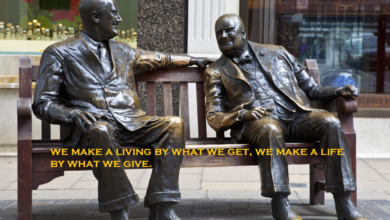
Altruism is defined as the practice of selfless concern for the well-being of others. While some may view altruism as a rare occurrence, it is actually a common practice among people around the world. In fact, many individuals regularly engage in acts of kindness and generosity towards others. But why do people practice altruism? In this article, we’ll explore some of the reasons behind this powerful practice.
A study by the University of California Berkeley states: “Altruism makes us happy: Researchers have consistently found that people report a significant happiness boost after doing kind deeds for others. Some studies suggest giving to others makes people feel happier than spending money on themselves; this has even been found among kids.”.
Why do people practice altruism?
Empathy and Compassion
One of the primary reasons that people practice altruism is empathy and compassion. When we see others in need, we often feel a natural desire to help. This innate sense of empathy and compassion is what drives many of us to engage in acts of kindness and generosity toward others.
Sense of Purpose and Fulfillment
Practicing altruism can also provide a sense of purpose and fulfillment. By helping others, we can make a positive impact on the world around us and create meaning in our lives. Additionally, acts of kindness can provide a sense of satisfaction and happiness that comes from knowing that we have made a difference in someone else’s life.
Social Connection
Altruism can also help to foster social connection and a sense of community. By engaging in acts of kindness towards others, we build relationships and create a sense of belonging. Additionally, witnessing acts of kindness from others can inspire us to engage in our own acts of generosity, creating a positive cycle of giving and receiving.
Cultural and Religious Values
For many individuals, practicing altruism is rooted in cultural or religious values. Many faiths and belief systems emphasize the importance of helping others and treating them with kindness and compassion. For these individuals, engaging in acts of kindness and generosity is not only a personal choice, but a reflection of their deepest values and beliefs.
Personal Growth and Development
Finally, practicing altruism can also contribute to personal growth and development. By engaging in acts of kindness, we can develop skills such as empathy, compassion, and active listening. Additionally, altruism can help us to overcome fears or limitations that may be holding us back from our fullest potential.
In conclusion, people practice altruism for a variety of reasons – ranging from empathy and compassion to cultural or religious values. Regardless of the reason behind it, practicing altruism can provide a sense of purpose and fulfillment, foster social connection, and contribute to personal growth and development. If you’re looking to make a difference in the world and experience the many benefits of altruism, consider incorporating acts of kindness and generosity into your daily life.




